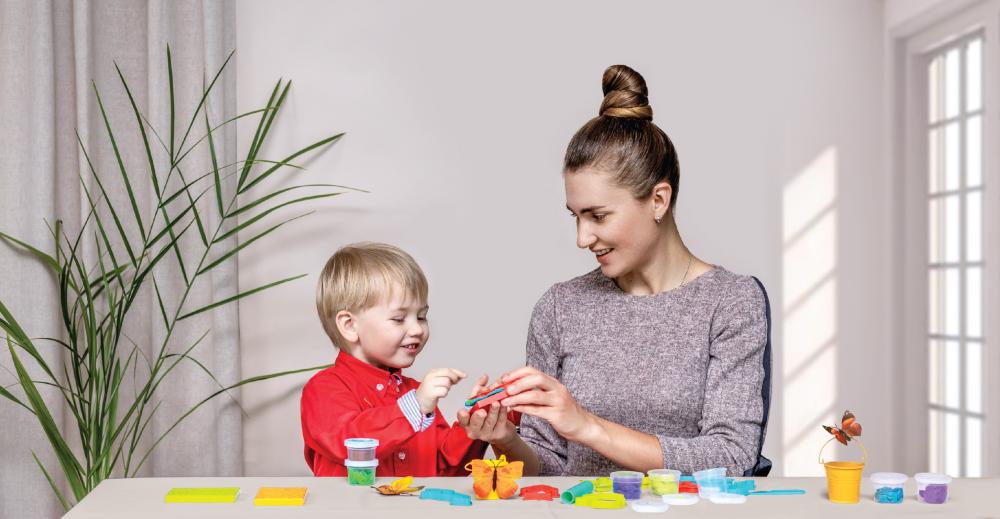Play is a child's language, a bridge of love between him and his parents and caregivers, and a fun and deeply impactful communication tool.
We often look for ways to understand our children, to get closer to them and know their worlds, and we seek to strengthen our upbringing with them with deeper connections than commands and advice.
We neglect this enjoyable method that we limit to entertainment only, even though it is a true language for communication...and for education and treatment at the same time, which is the approach of play therapy.
What is “ play therapy ”?
It is the use of play as a tool to help children express themselves, know their needs, understand their feelings, and overcome psychological and behavioral difficulties that they may not express in words.
In the past, this approach was used by specialists in mental health centers and behavioral clinics, but today it is no longer used as such. Rather, it has become a wonderful and effective method for every educator and parent at home to build a strong and secure relationship with their children based on communication, love, and intimacy.
Experiments and research have shown the importance of the play therapy approach in upbringing, which is highlighted by the fact that it:
• It enables the child to express himself freely without fear or hesitation.
• It allows parents the opportunity to enter the child’s world gently, away from pressure or direct instructions.
• It helps understand the child’s basic and real needs, even those he cannot express in words.
• It reduces tension within the family, and creates an atmosphere of intimacy, fun, and harmony.
•It builds bridges of effective communication between the child and the parents, which helps overcome obstacles.
It has been proven that play builds strong, deep bonds that are difficult to break or influence. When a caregiver engages a child in play, they are sending a powerful message: “I am with you, I see you, I hear you, and I enjoy my time with you.”
These small moments, which may seem fleeting, leave a deep and significant impact on a child's heart. With them, he learns the basics of trust, tastes the sweetness of intimacy and love, and feels safe and happy.
To every educator, do not hesitate. What you cannot achieve by shouting and getting angry, you will certainly achieve if you start playing with your child and focus on spending fun time with him.
Here are the steps to get started:
• Set aside regular time to play with your child, even if it's just 10 minutes a day.
• Let your child lead the game, and give him the freedom to choose, which will boost his self-confidence.
• Use play to ask questions and understand how he feels without asking him directly.
• Make play time free from guidance and criticism — just have fun.
After a short time of practice, you will be amazed by the results, and thus you will get:
A strong family… deep connection… and a child who grows up in an environment where he feels safe, belonging, and comfortable.
Ultimately, playing is not a waste of time—it's an investment in our relationship with our children, and in their psychological and emotional future. Let's strive to develop our relationship with our children to build a better tomorrow.
• Set aside regular time to play with your child, even if it's just 10 minutes a day.
• Let your child lead the game, and give him the freedom to choose, which will boost his self-confidence.
• Use play to ask questions and understand how he feels without asking him directly.
• Make play time free from guidance and criticism — just have fun.
